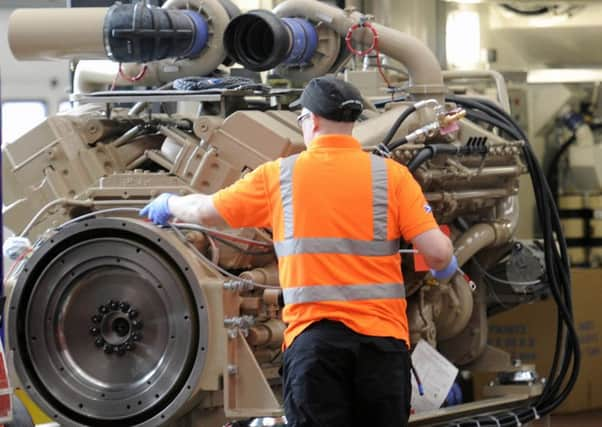'˜Brexit bounce' brings comfort to some sectors


Pundits and politicians pointed to black thunder clouds ahead and warned of a deluge. And while the clouds have conspicuously refused to burst – indeed, the Bank of England raised its growth forecast last week for the second time – the warnings continue: “Just wait!”
There is little doubt that businesses and households alike are seeing higher inflation as a result of the post-Brexit fall in the pound. And investment decisions continue to be dogged by uncertainty over the outcome of complex trade negotiations that have not even begun. For months the manufacturing sector has been singled out as being particularly vulnerable to waning confidence as a result of the Brexit vote. Indeed, the more those gloomy forecasts are aired, the greater the risk of them becoming a self-fulfilling prophecy. So it is particularly heartening to note signs of “encouraging economic prospects” for Scotland and the UK over the next six months.
Advertisement
Hide AdAdvertisement
Hide AdThe latest Business Trends report by accountants and business advisers BDO finds that optimism among manufacturers has reached a 20-month high and in the services sector a 14-month peak. Martin Gill, head of BDO in Scotland, says the economy “seems to be remarkably resilient both in Scotland and the UK as a whole. Businesses are surprisingly confident about the short term, encouraged by the opportunities our cheaper currency and a better-performing global economy have created”. These, he says, have provided a much-needed short-term boost for our economy, particularly our manufacturers.
Such good news, naturally, comes with caveats: that despite the immediate benefit of devaluation and the optimistic mood among businesses, the pound’s fall represents a “double-edged sword” as it contributes to rising inflation. And optimism about Scotland’s economy is not shared across forecasting groups such as the Fraser of Allander Institute and accountants Ernst and Young. Indeed, while the Bank of England expects growth across the UK of two per cent this year, Scotland’s economy watchers say growth here will be markedly lower – between 0.3 per cent and 0.5 per cent.
So there is much to be done to help the enterprise sector and in particular Scotland’s global exporters as Holyrood’s economy committee has urged. The Scottish parliament is also concerned about the risk posed by the potential loss of EU nationals from the workforce and is calling – again - for a bespoke Scottish immigration policy. While the latter poses many practical difficulties, it is right that forthcoming negotiations with the EU should prioritise this issue and seek to avoid barriers against the two-way flow of scientific, specialist and professional staff. Seeking to control immigration is one thing. But as President Donald Trump has found, securing compliance of the courts quite another. In the meantime we can take some comfort that some sectors of manufacturing and services at least are now enjoying a ‘Brexit bounce’.